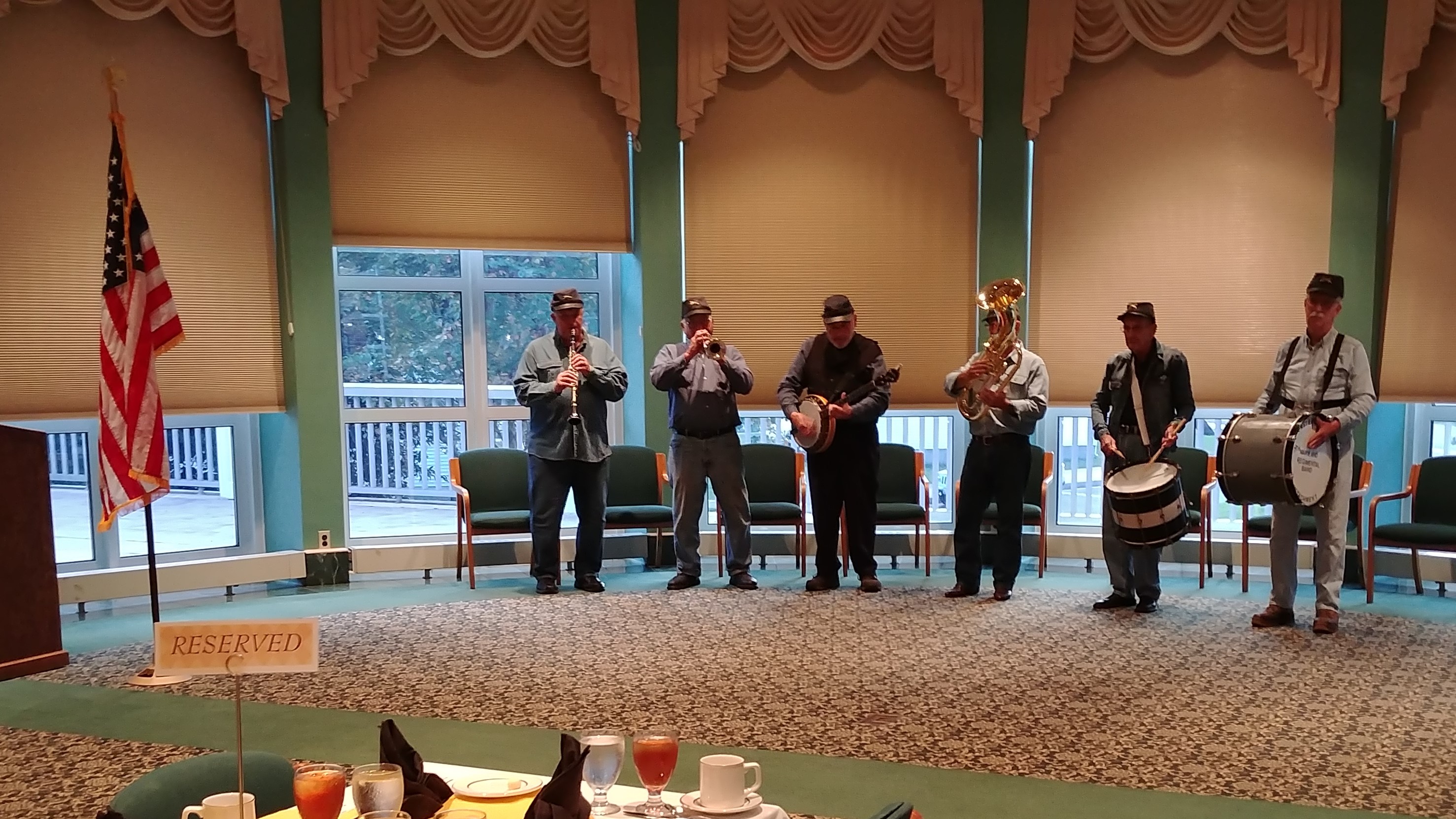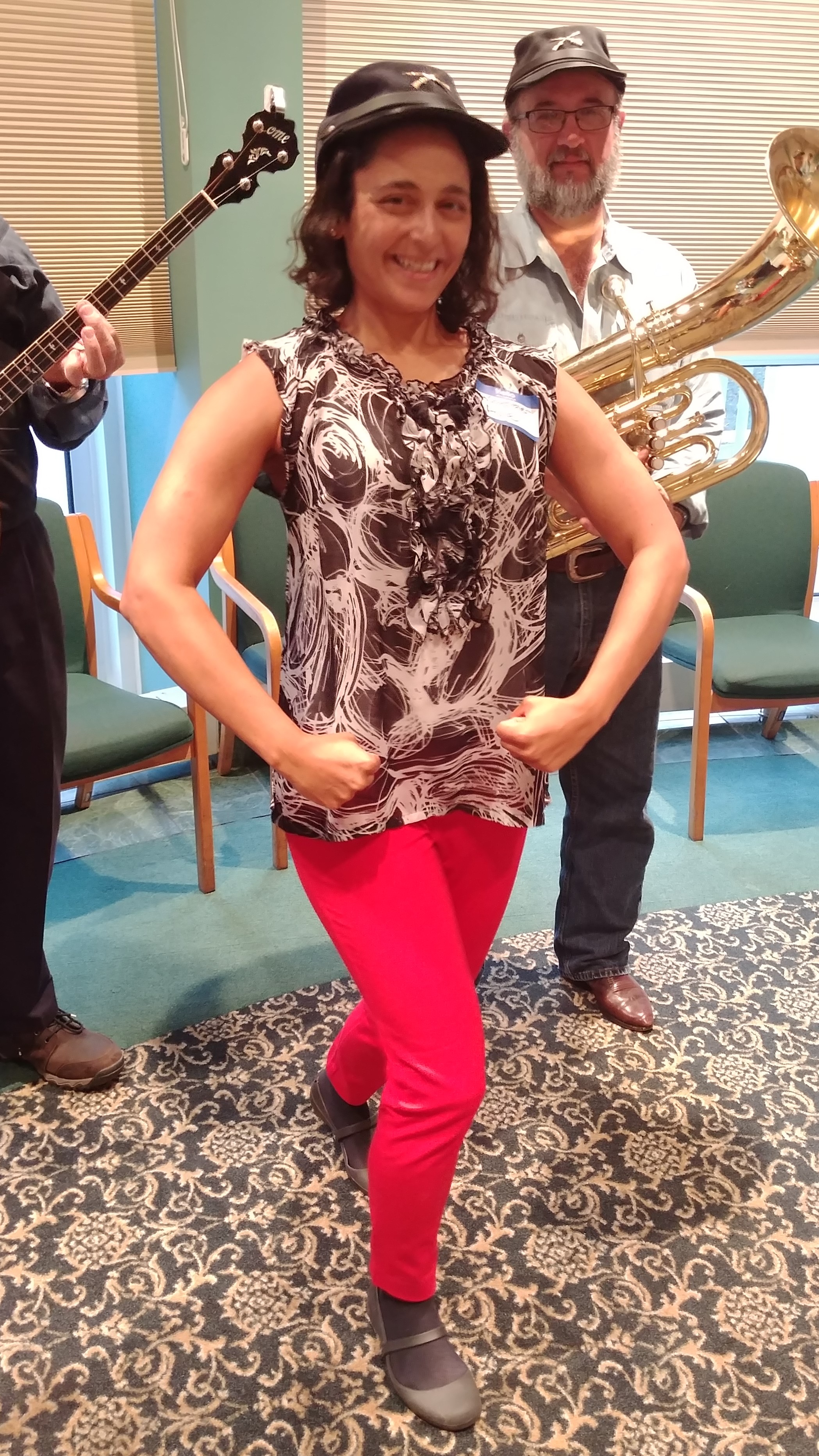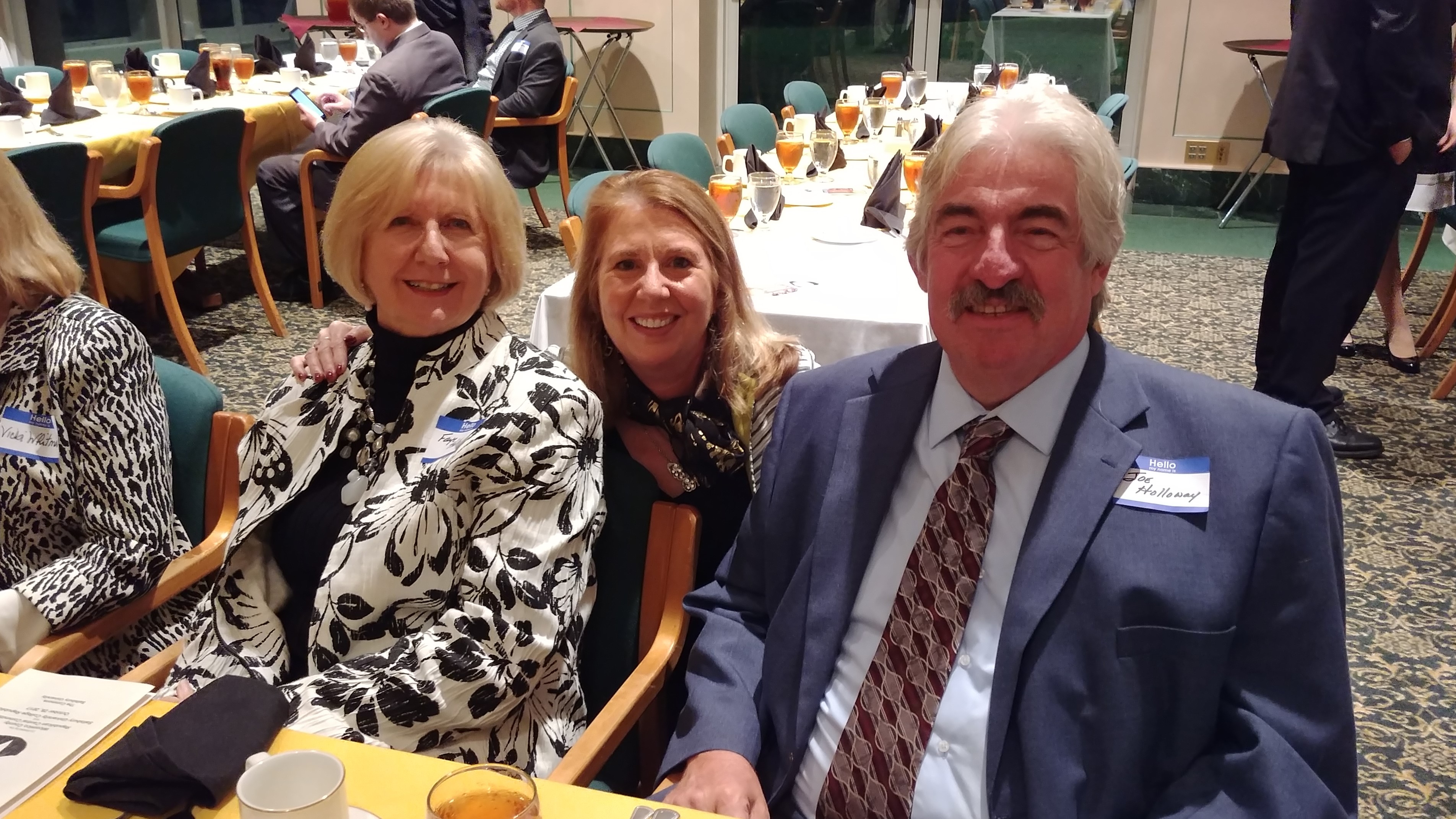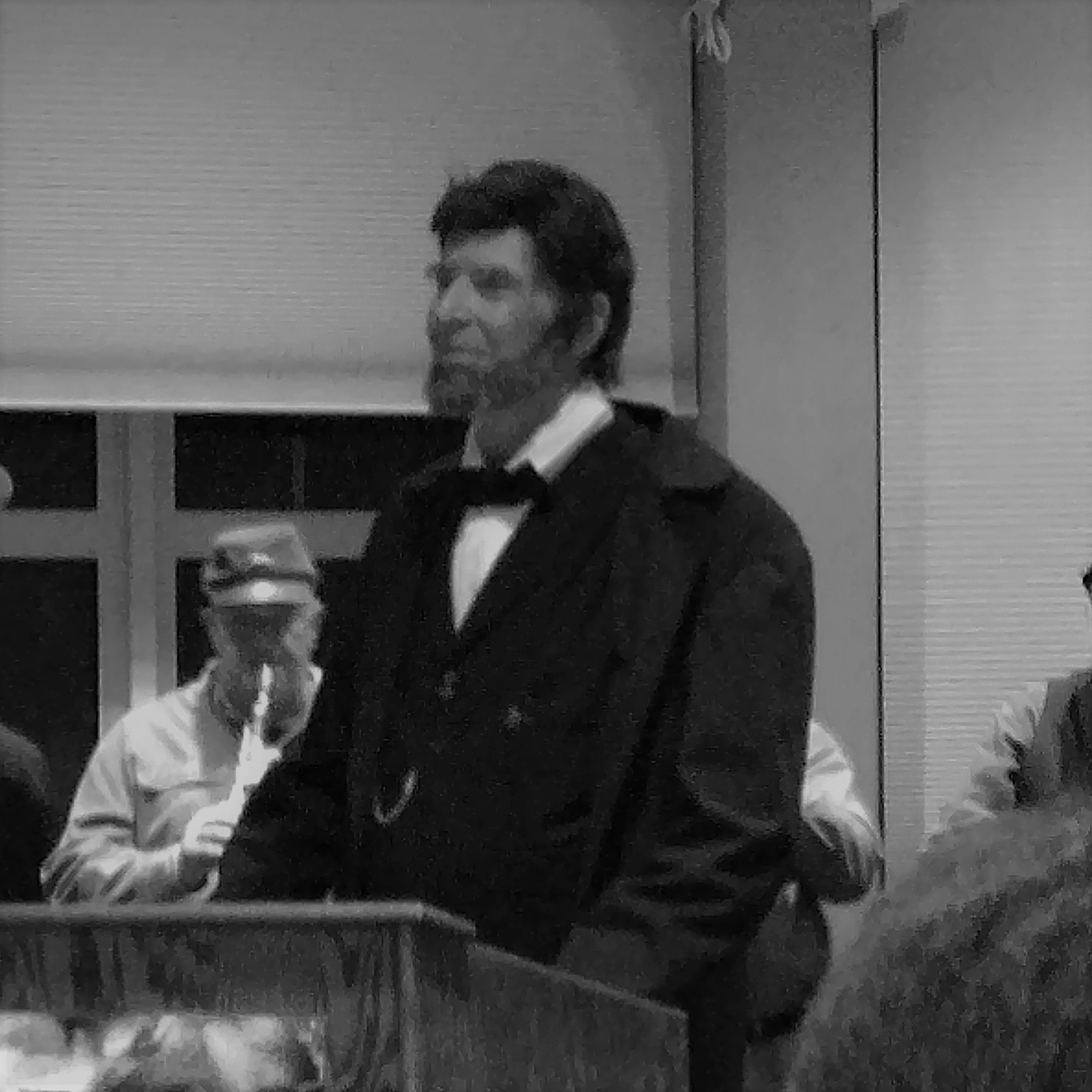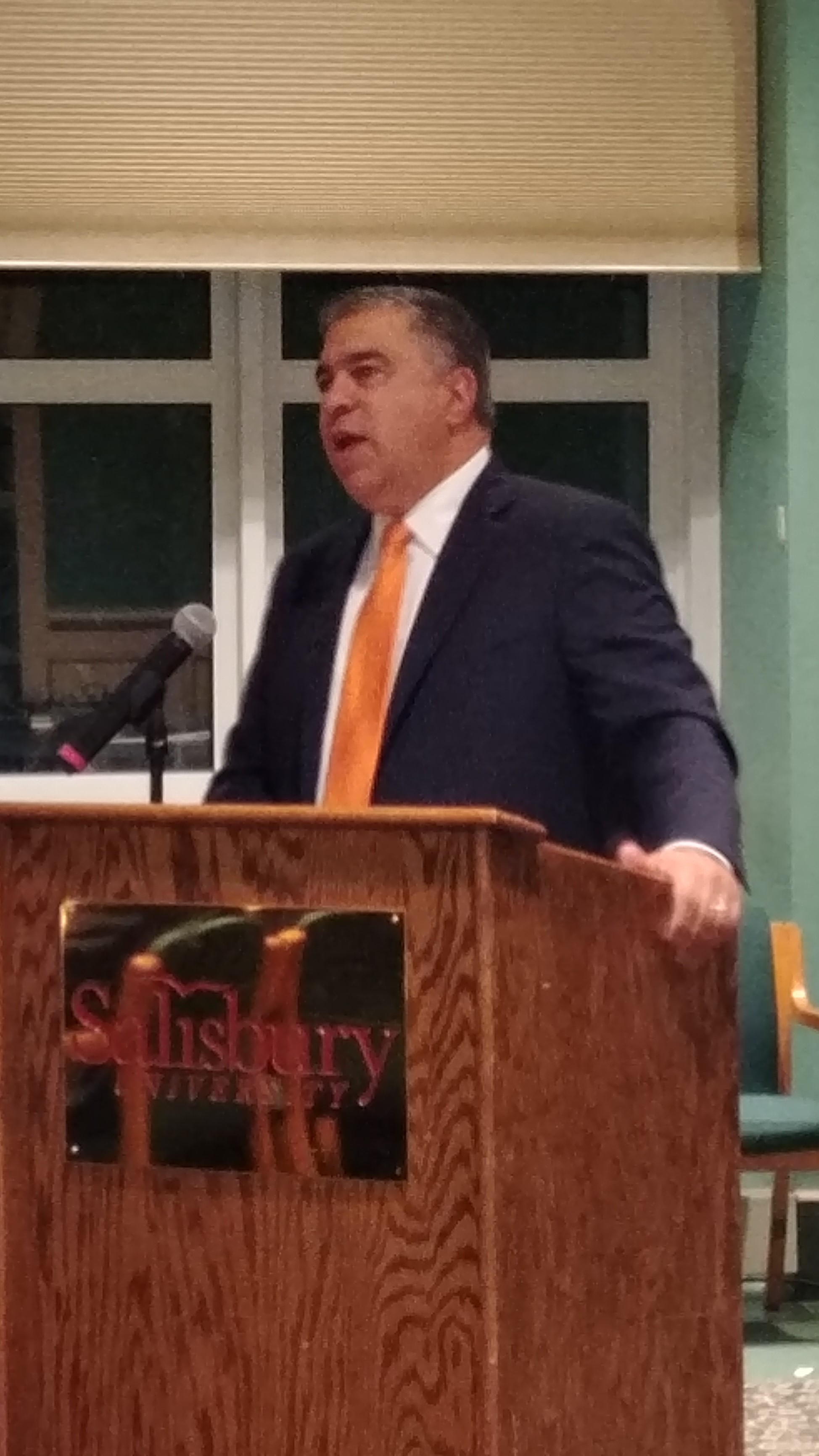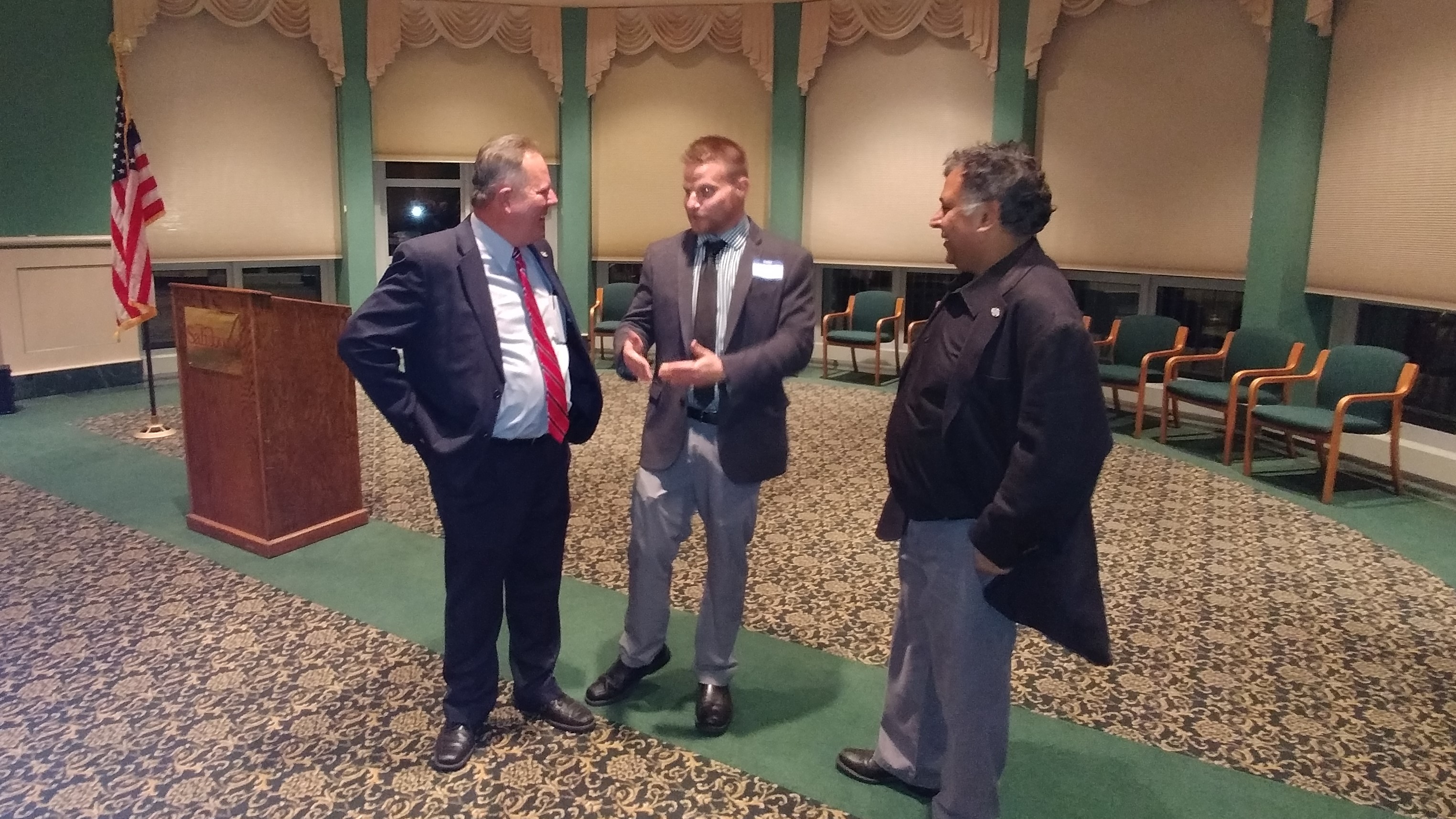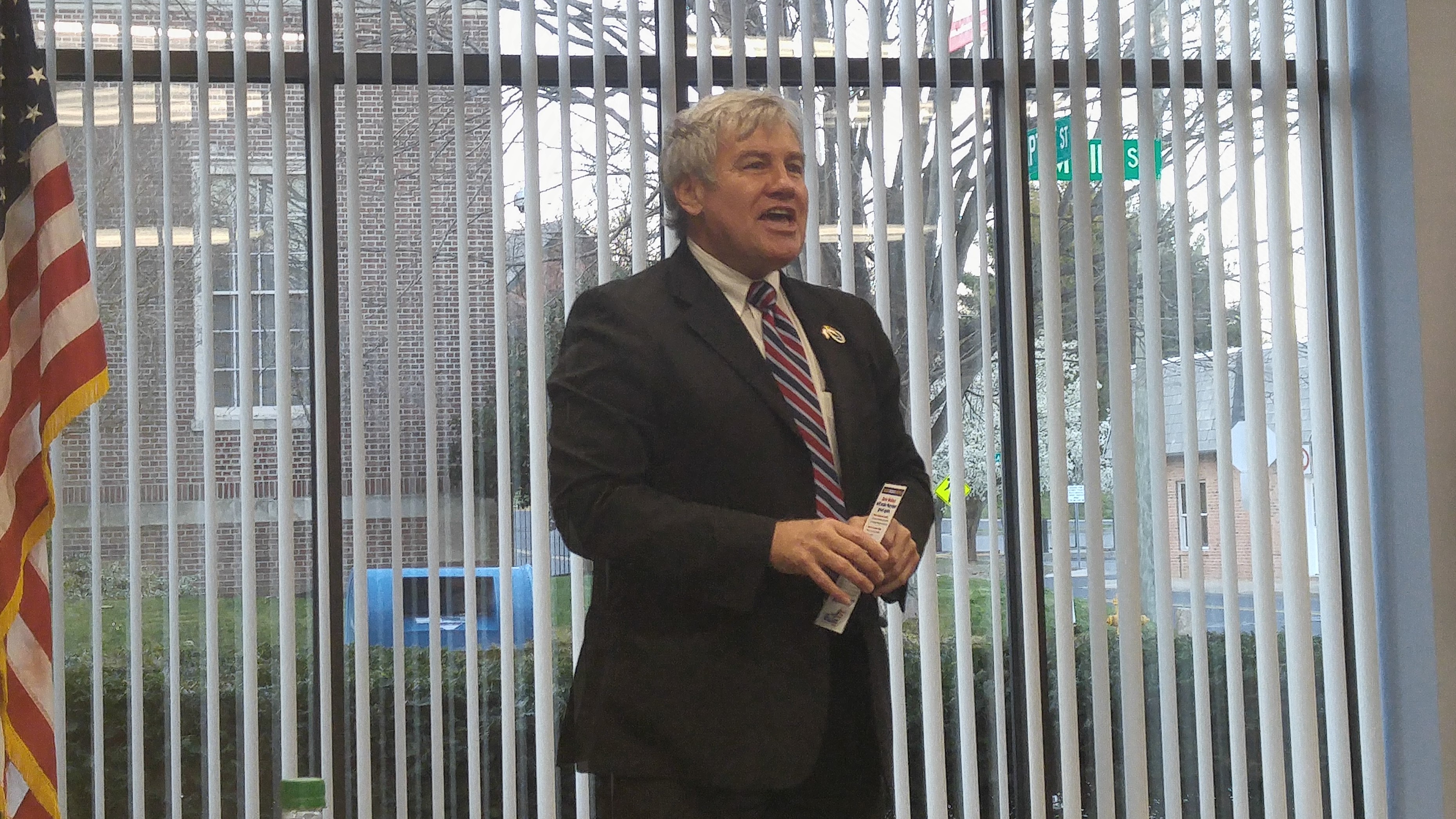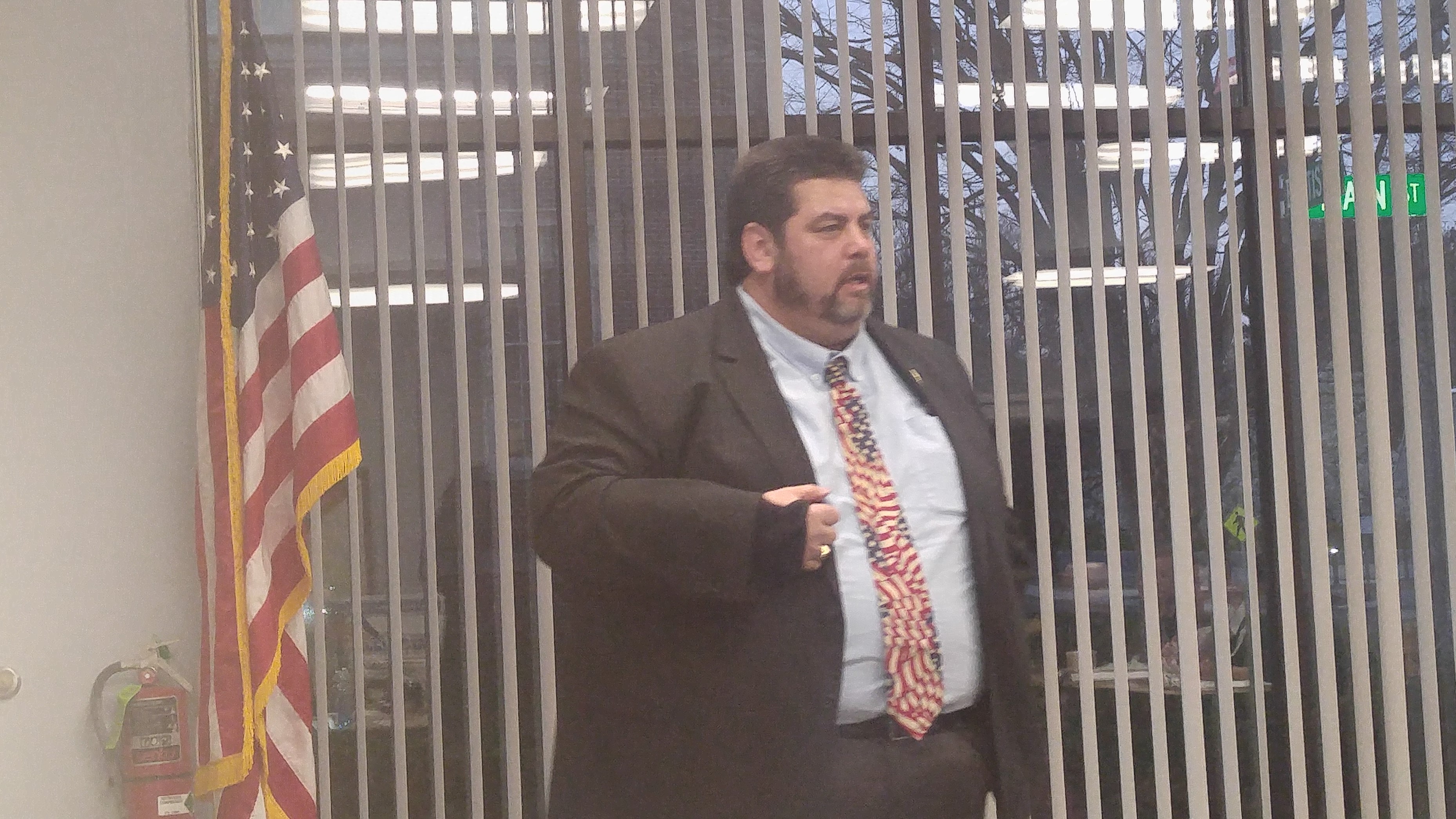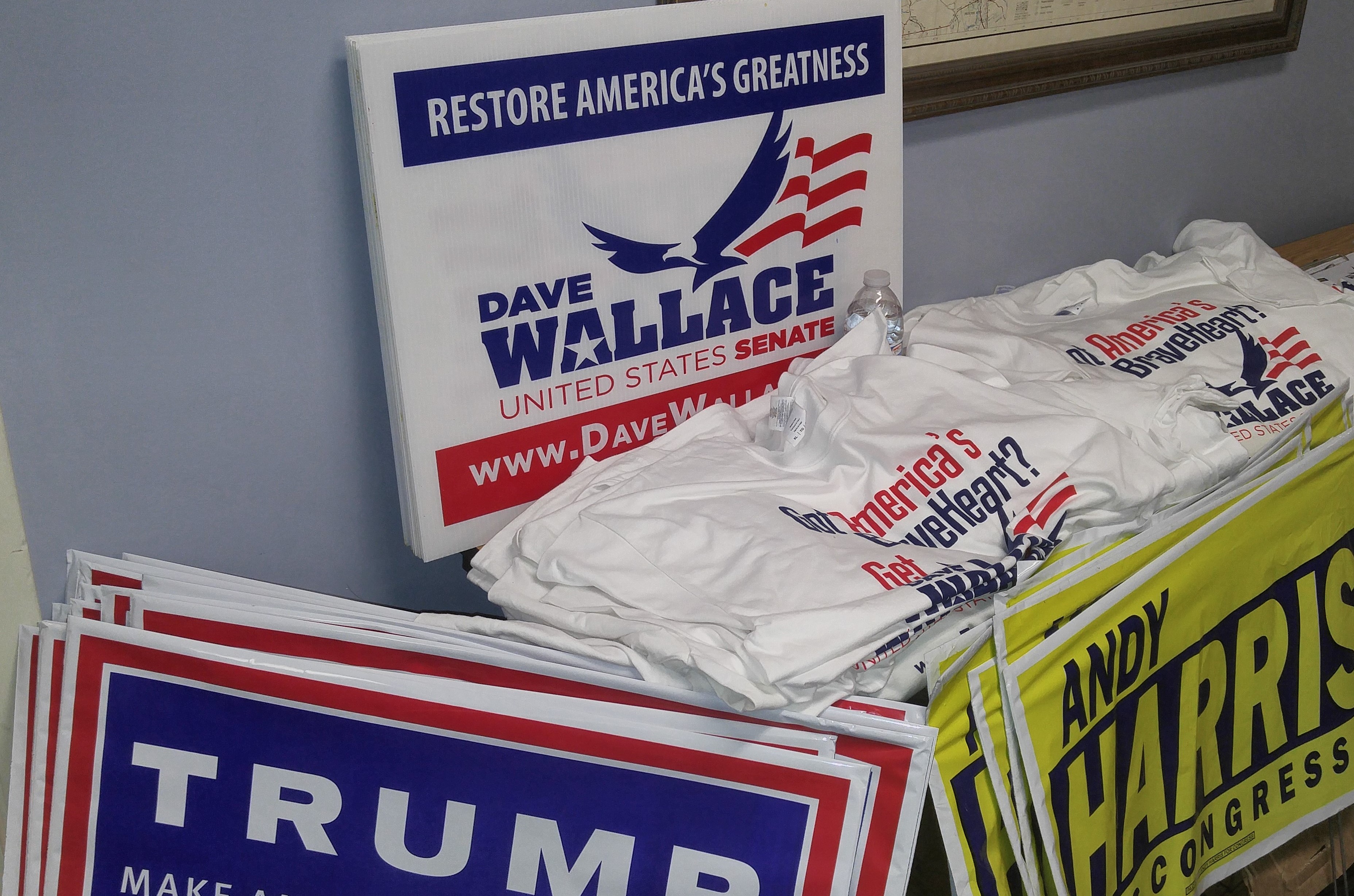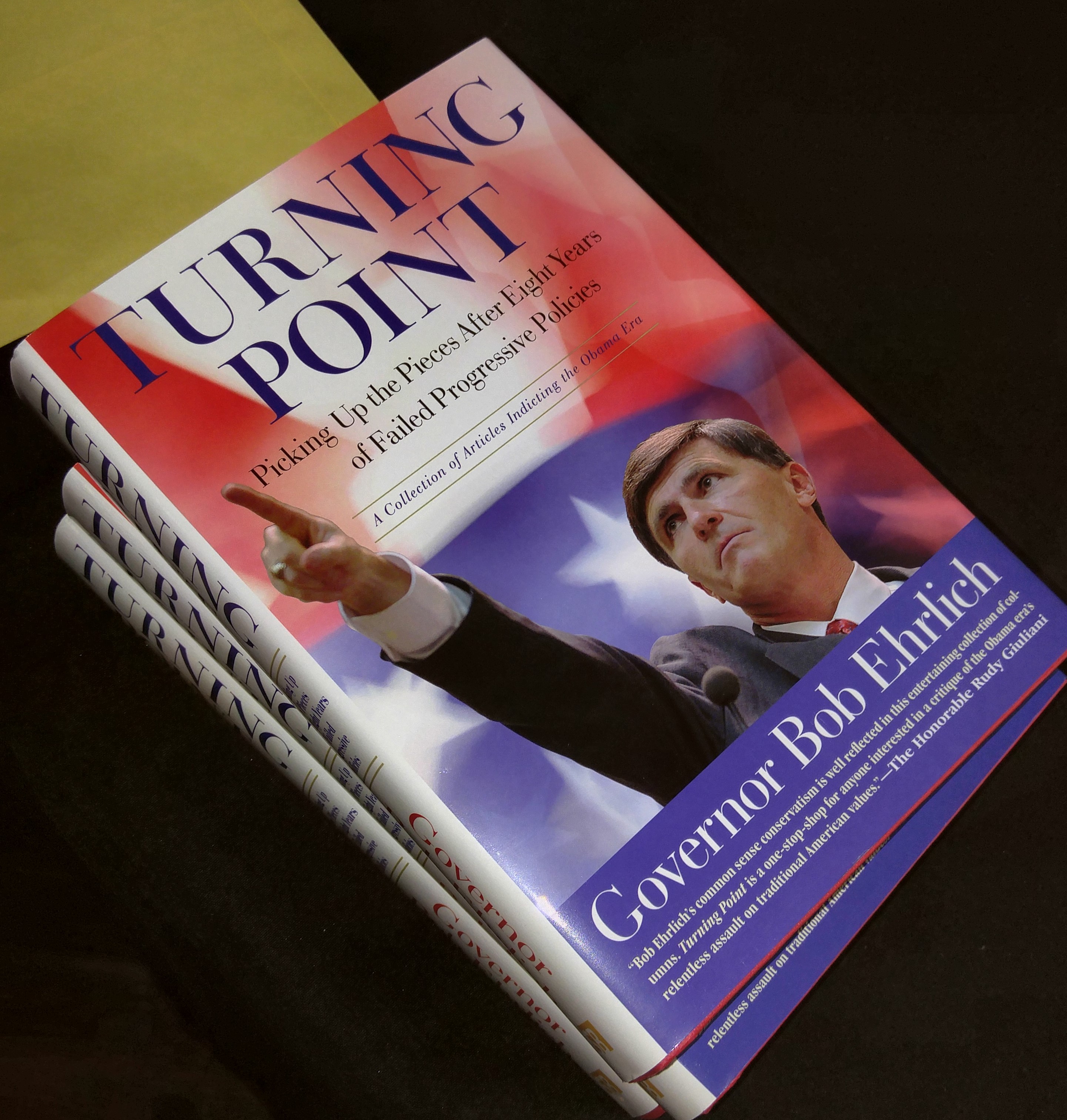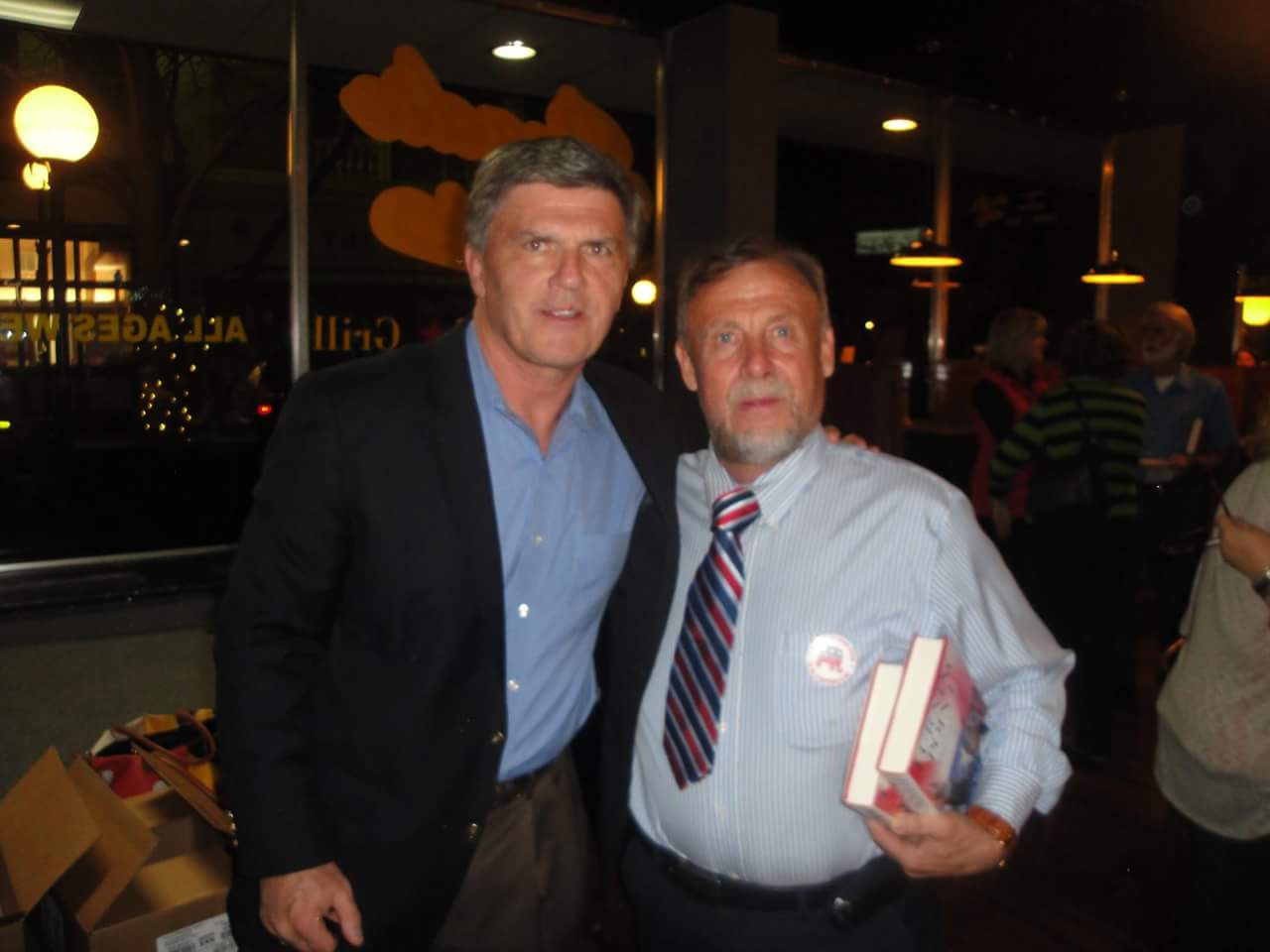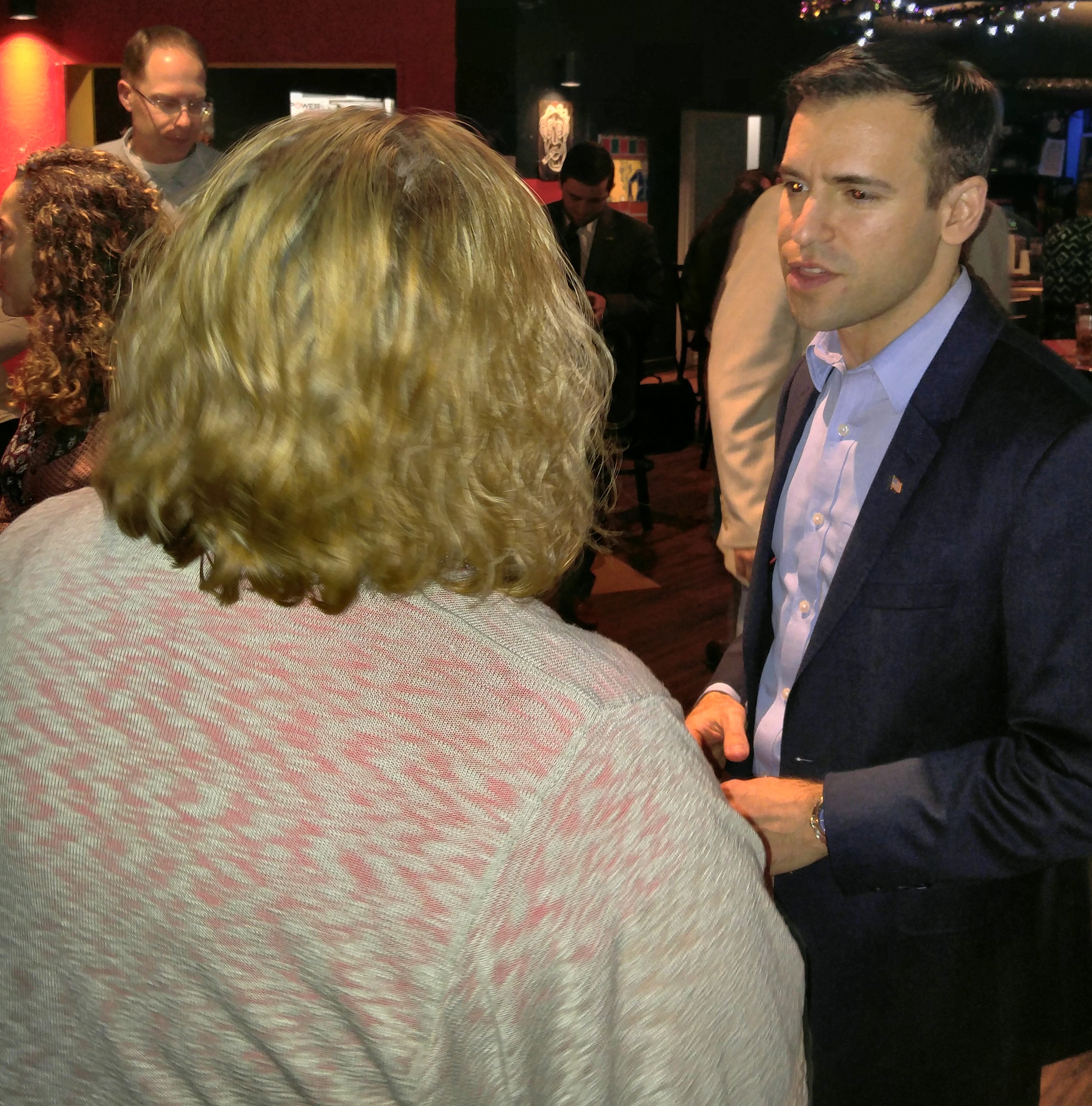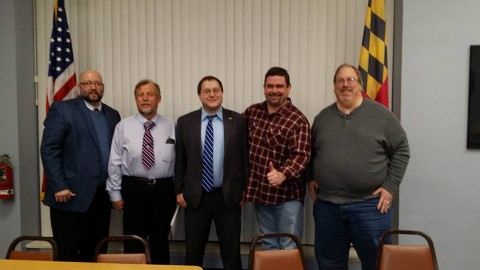It’s been a few years since I got to share my experience at the GBF, for various reasons: I involuntarily skipped the 2016 event (because I couldn’t go that Saturday and Sunday was rained out) and last year I went but lost all my photos when my phone crapped out a few days later. So since the last time I got to do such a post a whole lot has changed – including the captions I can add.
I’m going to begin by thanking my DD, who is better known to most as my wife. She got this photo coming in to pick me up.

One major difference was having the GBF move to a Friday evening – Saturday schedule. From what I could gather from asking around, attendance Friday night was decent but not earthshattering – probably akin to a normal Sunday. But since photography isn’t nearly as good at night and being an amateur photojournalist is half the fun for me at the GBF, I chose to only attend Saturday.

They added a few different games for the people to try, like the large-scale beer pong and unique bowling alley.

It was a modest beginning to the day. Seemed like a lot of people in line, but once they scattered it looked a lot emptier.


If there’s one thing the GBF was not hurting for, it was food. This didn’t catch every food vendor, either – there were a couple around the corner.

On Friday night, this was the karaoke barn. On Saturday college football ruled the day.

This was one of a few tents with the non-local breweries.
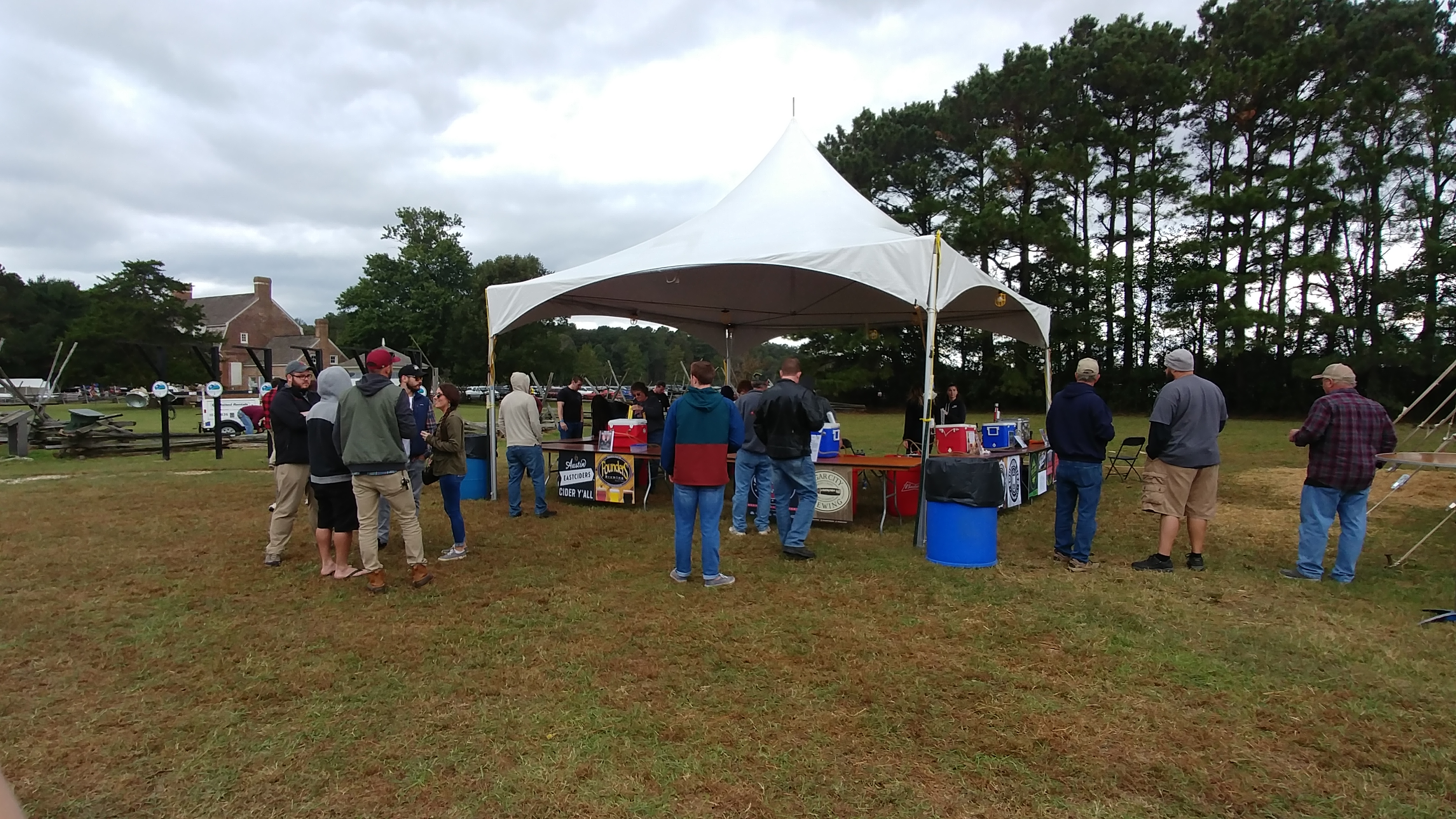
Not that I needed a map, but this was the substitute for the guides they used to give out.

The problem with not having the guides (although most of us don’t carry a pen around, either) is that I had nothing but my phone on which to write down the ones I liked. As I’ll expand on later, though, they were few and far between.
Of course I stopped by to see my friend Shawn Jester, the leader of the local Republican club. It was his turn to be the hostest with the mostest.

Being a local election year, I was very surprised to not see them on the GBF video I saw from Friday night. Shawn explained that flooding at the warehouse where their items are kept put the kibosh on getting set up before the event, so they came early Saturday morning. Nor was the GOP weren’t the only vacancy, as there were a couple other open spots.
However, it’s worth noting that both Clerk of Court candidates were there: Bo McAllister was set up to the left of the GOP a few spots down and Chris Welsh to the right. It was good because I finally got to speak with Chris.

The Lions Club ran the cornhole tournament, which seemed to draw decent enough interest. There was usually someone playing as I walked by.
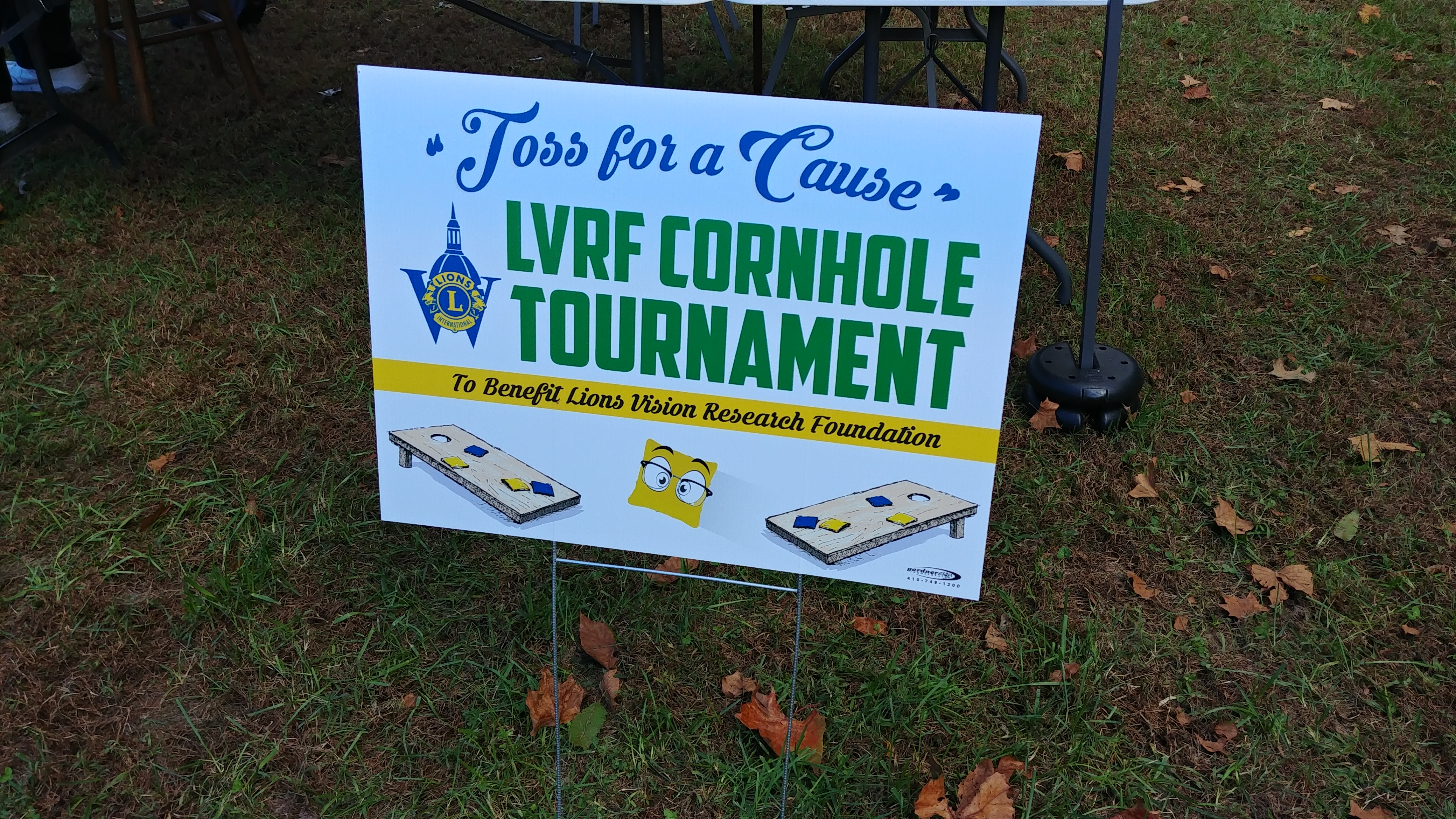
Finally, the sun came out and the crowds came out of nowhere to frequent the beer garden. This was taken about 2:30, two hours in.

Among that larger crowd: someone with a hat like this comes every year.
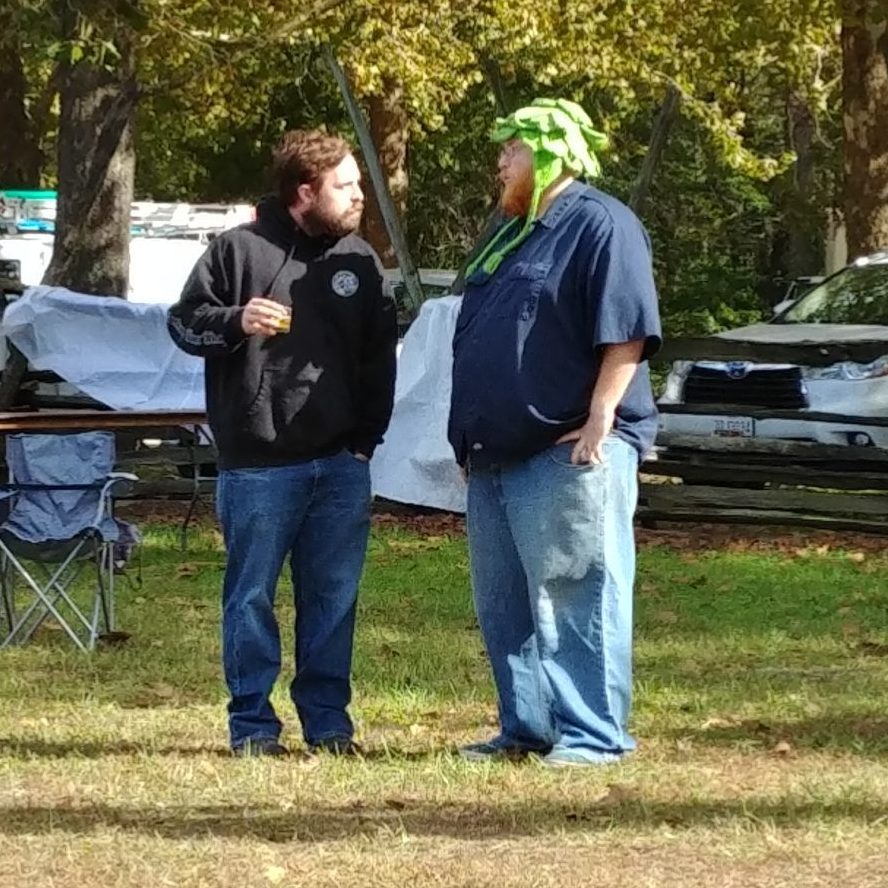
Remember that shot I took of the back of the beer garden? By 4:00 the place was hopping.

Even the human foosball was finally happening.

I had to leave about 4:00 when the event ended at 5:30 because of a family event. So here’s my parting shot, photography-wise.

Now that I’m through with the photos, it leaves room for a few thoughts.
I really can’t be a judge of how it went Friday night because I wasn’t there. But to me the issue with doing the event in this manner is that it discourages tourism – if you live across the bridge you would have to take off a half-day to attend and I don’t think all that many are willing to do so – particularly if Saturday looks bad weather-wise. I guess they were trying for a 3rd Friday vibe but I’m doubtful they succeeded. Nor did I think going to this sort of event after sunset was a smart play, particularly barely 24 hours after a torrential downpour from Tropical Storm Michael. (Notice the amount of straw in the photos.) Unfortunately, it meant I missed the better of the bands.
And speaking of that: I truly miss the two-stage setup. Sure, it left room for the games on one end but those were really underutilized. And they actually could have placed the main stage on the south end, kept the karaoke tent on the north end, and used that as the side stage. I guess as a cost-cutting move they hire fewer bands by having one stage.
In reading my older posts on the GBF, it’s apparent that either the number of breweries represented has declined somewhat or they are just not doing as many varieties. It was said there were 100 beers on tap, which may have been the case: but do you have to have half or more be IPAs? There are those of us who like the lagers, pilsners, blonde ales, and hefeweisens just as others like the stouts and dark brews. I felt a little underrepresented, although there were also a smaller number of pumpkin beers there, thank goodness. Of course, without a booklet guide it was hard to see where I wanted to go and what to try.
I also don’t know if you increased the vendor price but that seemed to be lacking, too. Granted, my experience was as a non-profit so our rules were a little different but the row of vendors seemed to be more anemic this time around. I also liked the previous practice of having the local beer garden more defined instead of just seemingly a random segment of tents that were clustered together.
I guess it’s time to stop beating around the bush with this piece: this year it felt like the GBF was the red-headed stepchild no one wants (not the craft brew of the same name.)
It seems like a whole lot of corners were cut this time around: for example, they always wanted the setup to be on Friday but having a Saturday-Sunday event meant two nights of security. Shift Sunday to Friday night and suddenly you only need one night of security, plus the lights that had to be there anyway could be taken down early Saturday night once the breweries were broke down.
Or make the Pub a karaoke tent and now you don’t need to rent a lot of seating. They’ve done one stage for a couple years, anyway, but by chopping time off each day of the event (it was a 5 1/2 hour window on Friday and 5 hour window on Saturday, instead of six both days) and cutting off the band time even further by the bands wrapping up a half-hour before the “official” end they’ve succeeded in cutting maybe 11 hours of live music down to eight. But you still have to have the sound set up so why cut the music?
When we lost Pork in the Park after a fairly successful run, we were told it was because the county wanted to concentrate on its other event held at Winterplace, the Wicomico County Fair. But the writing on the wall for Pork in the Park came a few years earlier after they mismanaged one year’s event into a cluster that angered a good number of vendors, then decided to double the admission price in the hopes a more well-known musical act may save the day. When neither worked, they downsized the event too much and never got the momentum back; meanwhile, our food tastes moved away from barbecue and on to other things. Now we have no such festivals when for a few years two had reasonable success.
I’m surprised to find that Maryland is one of the least successful states for craft beer – perhaps due to antiquated laws or just a population group that prefers other adult beverages. (By contrast, Delaware is a heavy-drinking state.) Another interesting fact: excluding Prohibition, the number of breweries in America hit its all-time low in 1978, when there were only 89. (Now just between Maryland and Delaware there are 94, a small segment of 6,372 American breweries listed in 2017.)
But at some point we will reach saturation. Remember how there were so many coffeehouses two decades ago? There is still a thirst for coffee, but the industry has consolidated: there are a few major players, particularly Starbucks and Dunkin’ Donuts, while regional and local shops such as Rise Up or Pemberton Coffeehouse remain as well. I suspect we are ready for a similar shakeout in breweries because tastes change and markets are fluid.
By the same token, where the Good Beer Festival was a rather unique event on its founding eight years ago, there are now beer festivals occurring in this region most weekends between spring and fall. Basically, I think the Good Beer Festival needs to become more of a destination: instead of dropping Sunday to add Friday night, go the opposite way and make it a whole weekend. Go back to multiple stages for music and catch those good up-and-coming regional acts like you did when you began. Perhaps try to get more beer-related vendors there, almost like a trade show. I think there can be a larger tent on the south end just for them so that aspect can be rain or shine.
By doing this and expanding the scope, you create an event that people interested in craft brewing regionally may want to spend the weekend at, sort of like how Pork in the Park used to attract BBQ teams from a wide area – except these folks won’t be camping outside cooking pigs, they’ll be using our lodging and eating at our other restaurants after hours – speaking of which, why not a 5:00 to 10:30 Friday, noon to 10:30 Saturday, noon to 5 Sunday event? Make it worthwhile.
Oh, and one more thing (and I can’t believe I’m saying this): they need to put a little fill line back on the cup. Maybe others need the full shot glass to taste, but I can get a good enough swallow with a half-shot to know whether I like it or not. People that stand at a tent and try six different brews have basically just consumed half a six-pack when it comes to alcohol (since craft beer is generally stronger.) I didn’t see too many unsteady people being held up by their friends yesterday but I didn’t stay until the end either.
The event this weekend came dangerously close to “meh…” for me, and if 40 people feel that way and stop showing up that’s $1,000 less the event brings in. As this is a fundraiser, one would think they would work on maximizing revenue by making it more attractive rather than get overly greedy for a subpar event or nickel-and-dime it to death like they did with Pork in the Park.
Oh, and I didn’t forget the music. There is a WLR upcoming from this, too.


